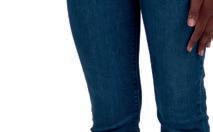Vocabulary
Places: apartment, bridge, building, city center, City Hall, farm, fields, hills, street, village
Countries: Argentina, China, Italy, Mexico, Poland, Spain, Turkey, U.K., U.S.A.
1 Exploring wildlife
Animals: beetle, camel, cheetah, crocodile, deer, eagle, kangaroo, polar bear, tortoise, wolf
Adjectives: dangerous, friendly, important, intelligent, safe, young
Technology: camera, cell phone, e-reader, game console, headphones, laptop, printer, screen, smart watch, speaker
Technology actions: post (an ad), print (pictures), turn off, turn on, upload (pictures), write (comments)

Everyday items: bandage, diary, flashlight, helmet, key, magazine, money, puzzle, rope, snack
Camping objects: blanket, gloves, jacket, sled, sleeping bag, stove
What do you like doing? I like (talking to people). What does he/she like doing? He/she likes (helping people). What time do you wake up? I wake up at (five after/to seven).
A deer is (shorter) than a camel. Cheetahs are more (dangerous) than deer.
Wow!, Really?, That’s unbelievable!, How amazing!
How often do you use a laptop? I (always) use a laptop. I (often) help. I’m helping now. You should (talk to somebody). You shouldn’t (message people you don’t know).
I have to/don’t have to (bring a rope). Does he/she have to (wear gloves)? Yes, he/she does. No, he/she doesn’t.
May I help you? Thank you! That’s very kind.
Working together where we live: A website
Learning about animal habitats: climate, habitat, shelter, survive An animal fact sheet
Using technology responsibly: chat online, make video calls, open emails, search the internet A blog post
Sharing skills with others: air, flat, float, sink Instructions
A progress puzzle
Grammar Global Citizenship Project Welcome A great place to live
A wildlife space
A technology advice poster
A class skills share
4 Let’s celebrate
Review 2 Our world
5 Being kind
Festivals: balloons, band, candles, costumes, drums, fireworks, flags, lights, masks, parade
Adjectives: dirty, frightened, hungry, surprised, thirsty, tired
Activities: care for a child, carry the groceries, clean the windows, clean up the trash, offer someone your seat, paint a fence, share food, visit someone, walk with friends, water the plants
Verbs: arrive, cry, laugh, pick up, smile, try
6 Our important places
Review 3 Our future
Vacation activities: buy a ticket, exchange money, go on a tour, go sightseeing, pack a suitcase, read a guidebook, stay in a hotel, take a taxi, travel by bus, wait in line
Transportation: airport, bus, cable car, ferry, minibus, subway
There was/wasn’t (a parade). There were some/weren’t any (fireworks). Where were you? When was (the party)? Who was (at the party)? Were you (tired)? What does (baklava) mean? How do you spell (baklava)?
I painted/didn’t paint the fence. Did you (laugh)? What did she (need)? Where did he (walk)? When did they (arrive)? Why did she need help? She needed help because (her shopping was heavy).
He/she’s going to (travel by bus). We/They aren’t going to (exchange money).
What are you going to (do)? Where is he going to (stay)? When are we going to (go)? How are they going to (travel)? I agree. I disagree.
Goodbye Next year, it’s going to be bigger! It’s really exciting!
Celebrations Mother Language Day, International Day of Happiness, World Children’s Day, International Day of Friendship
Future skills Working with others, Respecting others, Presentation skills, Organization, Conflict resolution, Making decisions
Celebrating different festivals: Moon, sky, stars, Sun A review
Helping our communities: collect, donate, project, volunteer A story
An international festival display
A kindness wall
Learning about ecotourism: accommodation, culture, ecotourism, souvenir An email
A tourist brochure
Pronunciation
Unit 1 /eɪ/, /æ/ Unit 4 /ɪr/, /i:/
Unit 2 /ʊ/, /uː/ Unit 5 /ɪd/, /d/, /t/
Unit 3 /kl/, /kr/ Unit 6 /sp/, /st/
2
2 All about technology Review 1 Our lives
3 Sharing our skills
DIGITAL DIGITAL
SAMPLE
I can understand conversations about past events and future plans.
I can recognize diff erent text types and their features.






I can follow a conversation and the events in a story.
Listening
I can recognize familiar phrases in conversations.
I can understand the gist and overall themes of texts.
I can ask and answer questions about past events and future plans.
I can use the correct phrases for diff erent text types.

I can make and respond to off ers, suggestions, and requests for information.
I can understand the sequence of events in stories.
I can participate in social exchanges.
I can write short texts on familiar topics.



























I can understand important details in short conversations.
I can understand key information in short texts.
Reading Speaking

I can ask for and give information about my community.
I can link simple sentences and add detail to my writing.
I can write sentences to describe pictures.
3
Writing My
Chart Welcome Unit 2 Unit 1 Unit 6 Unit 5 Unit 4 Unit 3 DIGITAL SAMPLE
Progress



















































A great place to live 1 building 2 street 3 hills 4 apartment 5 city center 6 City Hall 7 fields 8 village 9 bridge 10 farm 4 1 6 3 4 5 2 Vocabulary Places Welcome Lesson 1 What can you see? 1 0.02 Listen and explore. 2 0.03 Listen, point, and say. 3 0.04 Listen again. Then write. Who lives… 1 on a farm in the country? 2 in a village? 3 in an apartment close to the city center? 4 in the city close to the park? 4 Where do you live? Say. Where do your friends and family live?
Bella Alex I wonder… What do you like about where you live? DIGITAL SAMPLE
Leo
I like learning about different clothes, food, and music.















































I like showing people the country.

I like talking to people. I like helping animals in the city.

does Leo like doing? What do you like doing in the city? I like talking to people.


5 I can shine! 10 9 7 8 Lesson 2 1 0.05 Read.
listen
Grammar 5 Ask
I
2 Read
3 Read
1 What
2 I
3
4
4
Then
and match.
and answer. Structures What does he/she like doing? He/she likes (talking to people).
can talk about what I like doing where I live.
and learn.
and circle.
do / does you like doing?
like meet / meeting my friends.
What do / does she like doing?
She like / likes visiting new places.
What do the characters like doing? Ask and answer.
a b c d What
Nadia Leo Bella Sam
Nadia
DIGITAL SAMPLE
Sam
Narrator: The children are excited to find out more about the Great Places Festival.

Alex: So, are you excited to learn more about the projects for the Great Places Festival?







Bella: What are the projects about?





Alex: Come and see.




Narrator: Alex tells the children about the six projects. When they complete each project, they can have a missing puzzle piece.



Nadia: I love wildlife and traveling to places. Those projects sound fun.
Leo: I want to do the project about being kind.

Sam: When we finish the projects, we can show them to everyone at the Great Places Festival.
Alex: Yes, that’s a great idea.


I can understand information in a story. I can shine! 5
1
2
3
6 Vocabulary Dates 1 0.06 Listen
Then listen
Lesson 3
2 0.07 Listen and write the dates. 3 0.08 Read and listen. What do the children have to do for the Great Places Festival? 1 2 1908 2020
Imagine you are at City Hall. Role-play. Hello, I’m Alex. Welcome to City Hall. 4 Read again. Then answer.
How many projects are there?
Which project does Leo want to do?
What can the children do at the Great Places Festival?
and point.
again and say.
Which project do you want to do?
DIGITAL SAMPLE SAMPLE
Ask and answer.
3
1
2
3
It’s twenty to three. What time is it? Picture f!








do you

is it? does he

2 6
ten to three. It’s wake up? wake up? He wakes up
start work on their projects
It’s ten after one. It’s quarter to five. 5
What time What time What time What time do you wake up? I wake up at ten to seven.
start lunch
go home I can tell the time.
4 Ask and answer.
Remember! What time do you have breakfast? wake up do homework watch TV go to bed take a shower



DIGITAL SAMPLE SAMPLE
Structures What time do you wake up? I wake up at (five after seven).
I
7
Grammar builder
can shine! 1 0.10 Listen and number.
d
a e b f c g
h
Lesson 4
It’s ten to seven. It’s nine-thirty.
It’s twenty after ten. It’s twenty to three.
It’s six o’clock. It’s quarter after twelve. 4
0.11 Read and learn. Then listen and write. at five after seven. at quarter to six.
I wake up What time do the children… ?
have a break
watch a video
finish lunch
China Mexico Poland Spain Turkey U.K. U.S.A.
Let’s








make the world a great place to live!


Cars are a problem for many cities. But in the city center of Pontevedra, Spain, there aren’t any cars. Here, people walk or ride bikes everywhere. With no cars, the streets are safe and quiet.
People want more nature in their cities and towns, too. In China, they have a Tree Planting Day every year. In Mexico, Argentina, and Italy, there are plants on bridges, walls, and buildings. The plants make cities beautiful, and they’re also good for the environment.


People like helping each other, too. In the U.K., children help people with their shopping in grocery stores. In the U.S.A., adults and children go to parks to learn and teach each other new skills, like how to play board games.


Festivals are a fun way to bring people together. At the Children’s Festival in Turkey, children from all over the world celebrate their traditions with dancing, songs, and music.
We can plant more trees and flowers.



3
How
2 How
3 In
4
Lesson 5 8 I can
can
4 Talk
Look
Circle. a newspaper
a a guidebook b a website c Global Citizenship Working together to improve where we live. 2 0.13
Read again. Then answer. 1
do people help the environment in China?
do children help people in the U.K.?
the U.S.A., what can people learn at parks?
Where do children celebrate their traditions?
shine! I
read about different countries.
with a friend. How can you make your area a great place to live? 1
quickly at the text. What is it?
article
Read and listen. Which countries do you think the pictures show?
How
a c b nature festivals technology Let’s be friends Global Citizen Let’s be friends Let’s be friends I share toys!
Citizen I share toys! I share toys! Global Citizen I celebrate all families! I celebrate all families! I play with friends!
Citizen I play with friends! I play with friends! I try different food! Global Citizen I try different food! I try different food! I appreciate special clothes Global Citizen I appreciate special clothes I appreciate special clothes
Technology helps cities, too. In Poland, a company makes plates and bowls from plants. There’s less plastic trash in towns and the country. The streets are cleaner, safer, and more beautiful, too! OptC OptD
All
over the world, people are working together to
solve problems.
do people help each other where you live?
Global
Global
OptB
Global Citizen Working together where we live. DIGITAL DIGITAL SAMPLE SAMPLE
Lorem ipsum































































































































































































































































































